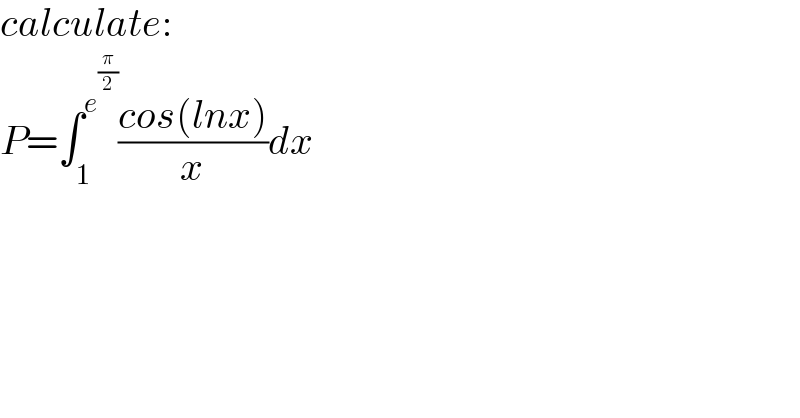
Question and Answers Forum
Question Number 168429 by mathocean1 last updated on 10/Apr/22

Answered by qaz last updated on 10/Apr/22

Answered by FelipeLz last updated on 10/Apr/22

| ||
Question and Answers Forum | ||
Question Number 168429 by mathocean1 last updated on 10/Apr/22 | ||
 | ||
Answered by qaz last updated on 10/Apr/22 | ||
 | ||
| ||
Answered by FelipeLz last updated on 10/Apr/22 | ||
 | ||
| ||